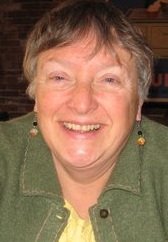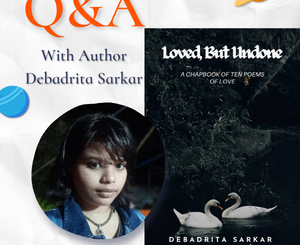What’s in a Name? by Kay Keppler
 Let’s welcome back monthly columnist, editor, and novelist, Kay Keppler, as she shares with us “What’s in a Name?” Enjoy!
Let’s welcome back monthly columnist, editor, and novelist, Kay Keppler, as she shares with us “What’s in a Name?” Enjoy!
***
The first line of Herman Melville’s Moby Dick is “Call me Ishmael.” Thus begins an incredible saga told through the eyes of one of literature’s greatest narrators.
Now imagine if that first line had been “Call me Fred.” There’s nothing wrong with the name Fred, but the line loses both its musicality and the sense that you’re embarking on a reading adventure of Biblical proportions.
Be Purposeful
Naming your characters is an important task that should not be done haphazardly or left to whim. Your characters’ names reveal who they are and where they came from. In addition, you can use names to suggest a character’s personality, social standing, or occupation. Names can be used, as Herman Melville did, to suggest grandiosity or historical significance.
As you consider names for your character, think if each name:
- Fits in historical context
- Suits your character’s role
- Meshes with the character’s ancestry
Historical Context
For example, let’s say that you have a 50-year-old woman who lives on a farm in Minnesota. Can you, or should you, name her Tiffany? Of course, you can name your characters anything you like. But even if you love the name Tiffany, and even if there is a real 50-year-old woman in Minnesota who lives on a farm and is named Tiffany, selling authenticity to a reader will be harder if you choose that name.
The Social Security Administration tracks the popularity of first names in the U.S. and its territories and slices and dices that information in a number of ways, including by year and state. The most popular female name in 1967, the year our heroine was born, was Lisa (both nationally and in Minnesota). The name Tiffany did not become ascendant until the 1980s and had largely fallen out of favor by the end of the 1990s. So Tiffany is off the mark.
Even if your character was not born in the U.S. in 1880 or later (the limits of the SSA’s data), think about the historical setting of your story. Men who lived in medieval France probably were not named Phoenix, so don’t name your character that if you’re writing a story set in that period.
Meanings of Names
If you want to add weight or significance to your character names, try using a name that has a defined meaning to it. For example, the name Noah, the most popular name for boys born in 2016, is from the Hebrew for “rest” and “comfort.” Maybe your character is an inn keeper or a chiropractor. Giving characters a name with meaning adds an extra dimension.
Character Ancestry
Is your character of Swedish or Indonesian ancestry? Those names—both last and first—obviously are distinctive and help to set reader expectations for story elements that follow. You might also want to consider the names of your characters’ parents. Is your hero a “junior”? Then he might have an old-fashioned first name such as Clarence.
Nothing says money more than a “III” behind the name. If you name your character Jasper Felix Widstrand III, you know you’re talking about a guy who was born with a silver spoon in his mouth. Bert Miller, on the other hand, works for a living.
Check your Choices
Once you’ve chosen your names, Google them to make sure that there’s not a famous person (or a convicted felon) with the same name. If, for example, a doctor or a landscaper somewhere has the name you’ve selected, decide if the person is well enough known that readers—or the person him/herself—might be upset if you used it for your villain.
Do all or several of the names in your book begin with the same letter? If so, change a couple of those names. You don’t want readers getting confused with an Oscar, Oliver, Owen, and Omar.
No Jokes
Avoid inadvertent—or deliberate—humor. Yes, there really is a Cherry Pies and a Penny Nickel, but don’t go for a cheap laugh. Your readers will wonder what kind of parents your character had: Did they really love their child and didn’t mean for her to be tortured on the playground? I don’t believe that for a minute.
Likewise, don’t choose a name where the initials spell out something funny or unfortunate. Don’t name a character Clarence Roland Arthur Pennybaker. Or Wilma Corson. Or Kristin Katherine Klapperich.
Listen for Sound and Clarity
Make some names longer and some shorter. They shouldn’t all be John Smith, Jane Doe, Fred Jones, and Mae Butts. Nor should you have nothing but Arthur Finley, Mary Golper, David Archer, and Susan Blackwell.
Finally, say the names out loud. Do you like how they sound? If Kristin Kristol or David Davison sound awkward to you, change them. If you’re making a point, however, then keep them, by all means.
One last thought: Unisex names can be confusing. If your beta readers tell you they were momentarily uncertain about the gender of any of your characters, think about fixing that.
Go Wild
If you’re stuck for names, or just like mulling possibilities, there are lots of baby name sites out there to trigger naming ideas. One of my favorites is Babble. You can also find a lot of resources aggregated here on Writers Write.
***
ABOUT THE AUTHOR
Kay Keppler is an author Zero Gravity Outcasts, Betting on Hope, Gargoyle: Three Enchanting Romance Novellas, and editor of fiction and nonfiction –Angel’s Kiss and Outsource It!
is an author Zero Gravity Outcasts, Betting on Hope, Gargoyle: Three Enchanting Romance Novellas, and editor of fiction and nonfiction –Angel’s Kiss and Outsource It!
She lives in northern California. Contact her here at Writer’s Fun Zone in the comments below, or at kaykeppler@yahoo.com to ask questions, suggest topics, or if you prefer, complain.







Too true!
On one of my workshop pieces, I named the antagonist after a very famous 1980s baseball player — inadvertently. I just thought the name had a nice ring to it — and I certainly didn’t mean to cast any shade on the guy! Fortunately, my fellow workshoppers caught it for me, and I found a name that was better, richer and helped shape my antagonist in new ways.
Thank goodness for fellow workshoppers! 🙂
It’s easy to choose a well-known name inadvertently because long ago you read it or heard it somewhere. (I think that’s how the “nice ring to it” comes about.) I once needed a name for a Romanian antagonist, so I searched baby name lists for first and last names and put something together that I liked the sound of. And then I googled it and discovered that this person I thought I had made up was in fact an internationally known Romanian peace activist who was friends with Bill Clinton. Oops! (And the fact that your workshoppers caught the baseball player’s name also demonstrates the value of beta readers. 🙂 )
What did we ever do before Google? (-: The next step, of course, is to use it Every Freaking Time.
Sometimes, though, you just don’t want to know. During some research, I came across the name Olivia Sage, and fell in love with it. She was a very interesting woman and philanthropist, but I think she’s obscure enough that her name won’t carry baggage for most readers. And if it does, that’s fine. My Olivia Sage is a strong woman and a teacher.
Absolutely, go with Olivia Sage! In this day and age, it’s all but impossible to choose a unique name. Somebody somewhere has it already. The main thing is just to avoid obvious problems. In fact, I once read an article in which people whose names appeared in books were interviewed to see how they felt about it. They all got a big kick out of their second-hand fame.
Thank you Beth and Kay! Kay I find your sharing and advice very interesting. I am new to writing fiction. Of course, your words make so much sense, except I would not have thought about these issues. I learned much. Thanks again!
You’re so welcome, Mary! We have lots of good stuff here at Writer’s Fun Zone.
I’m so pleased that you found the article helpful! Best wishes for your writing journey. As much as we all constantly feel that there’s more to learn, nothing is as useful as practice. Keep up the good work!